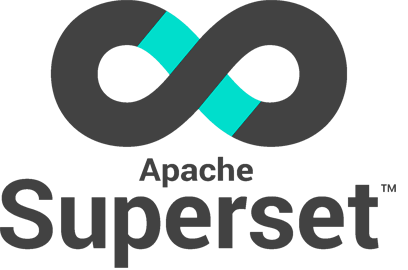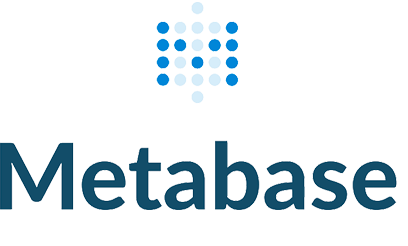Here is a list of popular open-source vendors for building a modern storage architecture:

Apache Superset
Apache Superset is an open-source data exploration and visualization platform. It offers a simple and intuitive interface, as well as robust features for creating interactive dashboards and visualizations. Apache Superset also supports a wide range of data sources, making it a flexible solution for organizations with diverse data environments.

Metabase
Metabase is a lightweight and easy-to-use BI tool that offers a simple, web-based interface for exploring data and creating visualizations. It offers a wide range of data connectors and supports both SQL and NoSQL databases. Metabase is a great choice for smaller organizations or teams that need a quick and easy way to start exploring their data.
Redash
Redash is an open-source BI platform that allows users to create and share interactive dashboards and visualizations. It supports a wide range of data sources and provides flexible data querying and visualization options. Redash also offers a number of collaboration features, making it a great choice for teams that need to work together on data analysis.
Apache Kafka
An open-source event streaming platform that allows organizations to process, store, and analyze real-time data streams at scale.
Apache NiFi
A web-based data flow management tool for automating data ingestion, transformation, and delivery processes.

Apache Airflow
A platform to programmatically author, schedule, and monitor workflows.
The benefits of using open-source vendors for building a modern storage architecture include:
- Cost-effectiveness:
Open-source software is typically free to use, which can significantly reduce the cost of building and maintaining a modern storage architecture. - Scalability:
Many open-source storage solutions are designed to be highly scalable, making it easier to handle large volumes of data as the organization grows. - Flexibility:
Open-source software is highly customizable, allowing organizations to tailor their storage architecture to their unique needs. - Community support:
Open-source software often has a large community of users and contributors who provide support, bug fixes, and feature enhancements. - Security:
Open-source software is often more secure than proprietary software because the source code is publicly available and can be audited by security experts.
PostgreSQL and ClickHouse are both popular open-source databases that offer unique benefits for different use cases

PostgreSQL
PostgreSQL is a powerful and robust relational database management system (RDBMS) that has been in development for over 30 years. It offers advanced features like support for complex queries, data integrity, and concurrency control. It is widely used in enterprise environments and is known for its scalability, reliability, and performance.
Some benefits of choosing PostgreSQL include:
- Mature and stable RDBMS with strong community support
- Supports complex data types and advanced features like indexing, partitioning, and replication
- Can handle high transaction volumes and is optimized for read-heavy workloads
- Works well with other open-source tools like Python, Ruby, and Java

ClickHouse
ClickHouse is an open-source columnar database management system that was designed to perform high-speed analytics on large datasets. It is optimized for OLAP (Online Analytical Processing) workloads and is used by companies like CloudFlare, eBay, and Yandex.
Some benefits of choosing ClickHouse include:
- High performance and scalability, can handle petabytes of data
- Columnar storage enables fast query processing and compression
- Supports advanced analytics features like time series processing, graph analytics, and machine learning
- Easy to set up and manage, with a simple and intuitive interface
- Can be deployed on-premises or in the cloud.
The choice of database depends on the specific use case and requirements of the organization. PostgreSQL is a good choice for companies that need a mature and stable RDBMS that can handle complex queries and high transaction volumes, while ClickHouse is ideal for companies that need to perform fast analytics on large datasets.